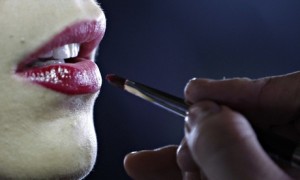From foods to skincare and makeup, people are excited to purchase items with the label “natural” or “organic,” and they are willing to pay more money for what they think are better and greener items. But how can you be sure these beauty products really are what they claim to be and do what they claim they do?
The Food and Drug Administration does not regulate the use of the word “natural.” That means you need to do more investigating into what you think is a “greener” skincare approach. Check the label for ingredients like fragrance (which also cannot be regulated), parabens for preserving and sodium lauryl sulfate, which acts as a foaming agent. All of these point to a not-so-natural product. Also, if you think that mask or lotion is green because of all the wonderful leafy ingredients, you might want to double check. Most coloring is unnatural and man-made.
Know what to look for when searching for natural products. Ingredients are usually listed in order of volume — the first two ingredients usually make up the bulk of the product. Look for essential oils for fragrance instead of just the term “fragrance,” and coconut and shea butters as moisturizing agents.
Be weary of expiration dates. If you finally find an all-natural product, be careful to note when it will go bad. These plant-based products can spoil, just like the fruits and veggies in your fridge. Read labels closely for expiration dates (usually marked in months) and use a permanent marker to write when the product should be thrown out and repurchased to avoid spreading germs and bacteria to your body.
Consider looking to the supermarket instead of the drugstore or department store.

Many natural products can be found in food and herbal products. By making your own remedy, you can avoid scrutinizing labels and will know exactly what goes into it. Mix up a mask made of honey, milk and avocado for glowing skin. The avocado and milk moisturize the skin, while honey acts as a natural disinfectant to get rid of germs that could cause acne!
Not all products that claim to be natural are good — though not all are bad — and they all are certainly not natural. Be careful before you dish out big bucks for these items that are more prevalent now than ever.






